100 % more pressure - MTU Aero Engines
100 % more pressure - MTU Aero Engines
100 % more pressure - MTU Aero Engines
You also want an ePaper? Increase the reach of your titles
YUMPU automatically turns print PDFs into web optimized ePapers that Google loves.
104<br />
The equity ratio increased<br />
to 24.2 % in 2011.<br />
further information<br />
on page 239 ff.<br />
further information<br />
on page 71<br />
Non-current liabilities in the amount of € 416.0 million (2010: € 547.6 million) principally comprised<br />
financial liabilities amounting to € 53.4 million (2010: € 204.7 million) and deferred tax liabilities of<br />
€ 229.6 million (2010: € 231.5 million).<br />
The combined total of equity and non-current debt decreased in the financial year 2011 by € 45.4<br />
million (2.4 %) to € 1,870.5 million (2010: € 1,915.9 million). This means that 99.2 % (2010: 104.5 %)<br />
of the company’s non-current assets are matched by financing funds available on a medium- to<br />
long-term basis.<br />
Current debt rose by € 357.9 million (23.7 %) to € 1,868.1 million, mainly as a result of the<br />
reclassification of the convertible bond, which matures on February 1, 2012, from non-current to<br />
current liabilities. The nominal value of the convertible bond at 31 December, 2010, was € 148.6<br />
million. Provisions and income tax liabilities fell by € 57.1 million (19.3 %) to € 238.4 million. This item<br />
includes pension provisions amounting to € 28.5 million (2010: € 24.2 million), current other provisions<br />
amounting to € 199.9 million, which decreased by € 0.2 million (0.1 %) compared with the previous<br />
year, and income tax payable, which fell from € 71.2 million to € 10.0 million. Current liabilities in-<br />
creased by € 415.0 million (34.2 %) to € 1,629.7 million. These include obligations toward employees<br />
totaling € 41.3 million (2010: € 39.2 million), financial liabilities amounting to € 208.2 million (2010:<br />
€ 57.2 million), trade payables amounting to € 592.7 million (2010: € 424.5 million), the balance<br />
of construction contract payables after deduction of the corresponding receivables amounting to<br />
€ 715.0 million (2010: € 666.3 million), and sundry other identifiable obligations.<br />
Within the structure of equity and financial debt, the equity ratio increased by 0.3 percentage points<br />
to 24.2 % (2010: 23.9 %), while short-term debt capital increased by 5.9 percentage points. Overall,<br />
there has been a shift in the structure away from medium- and long-term toward <strong>more</strong> short-term<br />
debt capital.<br />
OFF-Balance-sheet assets<br />
The group has assets that are not included in the balance sheet. These mainly relate to certain<br />
leased or rented goods (under an operating lease). Further explanatory comments are provided<br />
in Note 42.1.1. to the consolidated financial statements (Obligations arising from operating lease<br />
arrangements). The most important intangible assets include the <strong>MTU</strong> brand, which has continually<br />
grown in strength in the year under review, and <strong>MTU</strong>’s portfolio of intellectual property, which<br />
contains over 2,800 patents and other forms of industrial property and serves to protect the<br />
company’s technology rights. More detailed information on <strong>MTU</strong>’s patent portfolio is provided in<br />
Section 1.4. (Research and development) under the subheading “Safeguarding technological<br />
assets”. Significant value can also be attributed to the company’s long-established and smoothly<br />
running risk- and revenue-sharing partnerships with the world’s leading engine manufacturers Pratt<br />
& Whitney, General Electric and Rolls-Royce, and with Avio, Snecma Moteurs and Volvo <strong>Aero</strong>. One<br />
of the advantages of these partnerships is that they assure stability in a changing business<br />
environment and reduce entrepreneurial risks.<br />
They also give <strong>MTU</strong> access to the full global potential of the commercial engine market. Another<br />
advantage of these intensive collaborations is that they frequently give rise to mutually beneficial<br />
research and development projects in which know-how and development capacity are pooled.


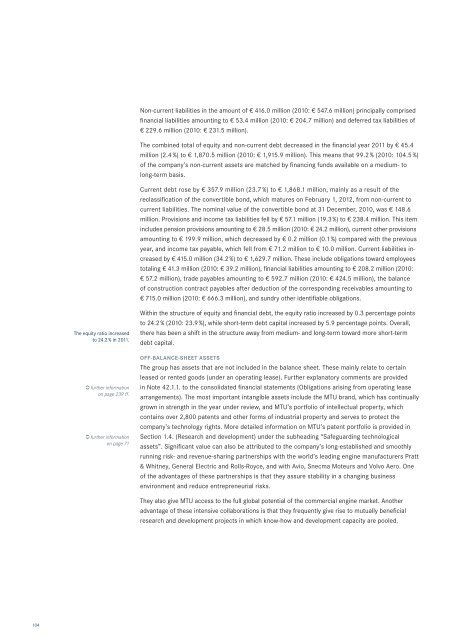

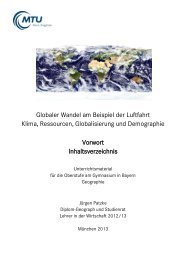
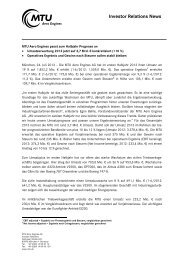

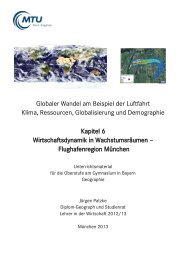
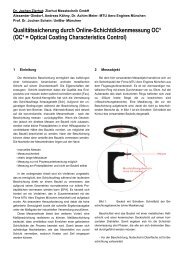
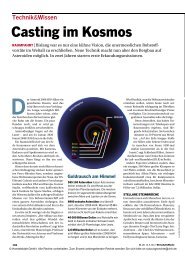

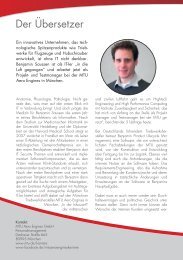
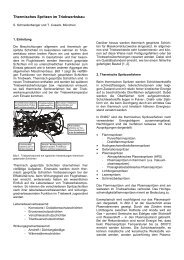
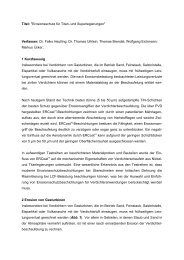
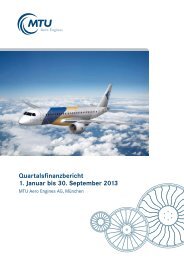
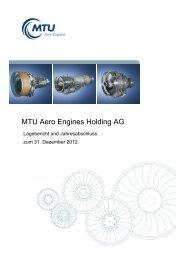
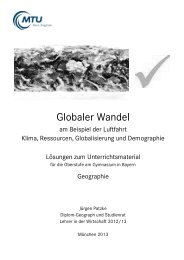
![Download PDF [5,37 MB] - MTU Aero Engines](https://img.yumpu.com/21945461/1/190x125/download-pdf-537-mb-mtu-aero-engines.jpg?quality=85)